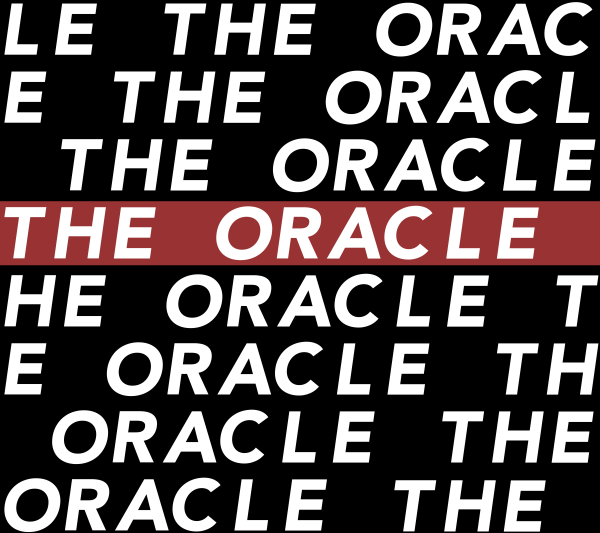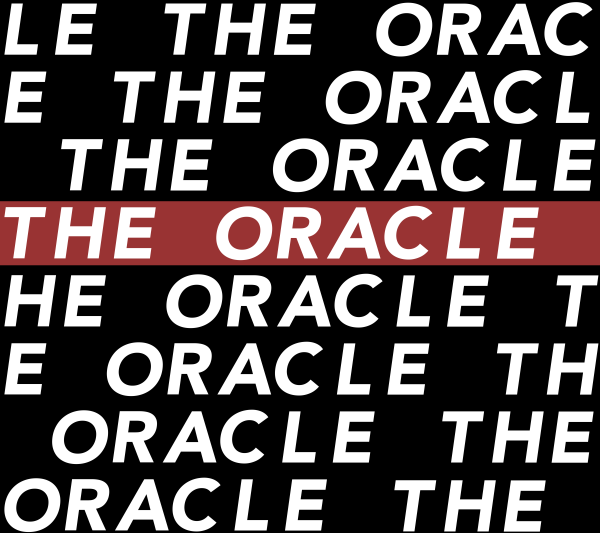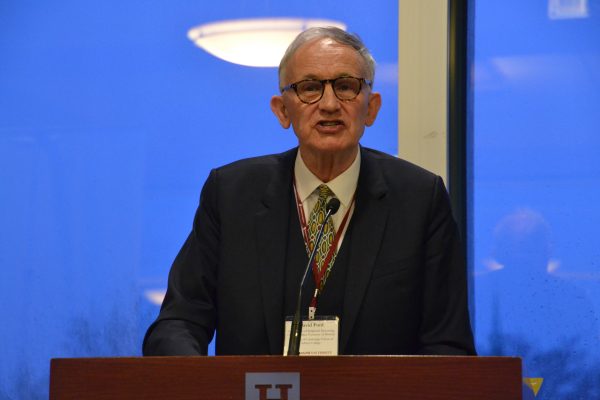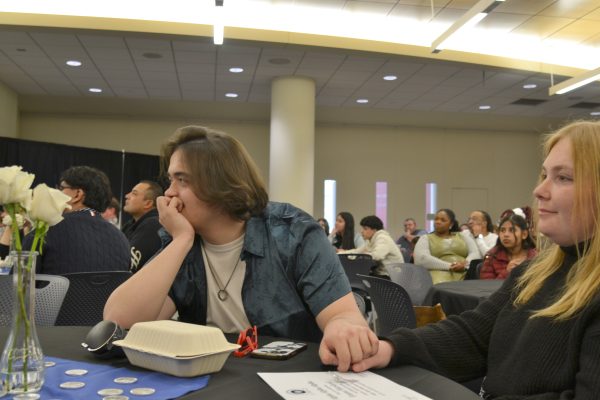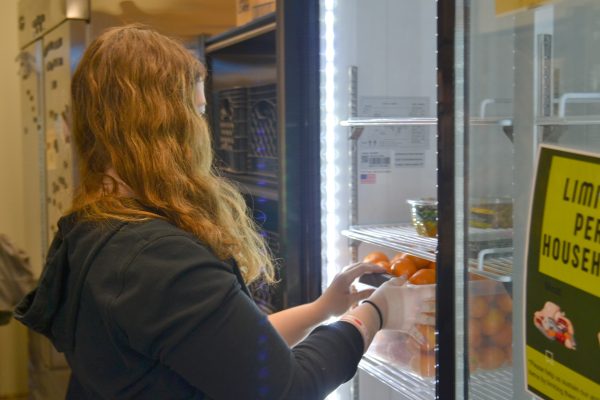Sacrifice in the name of opportunity
Hamline first-year and her family find a new home in the pursuit of education and aiding those who are treated unfairly.
December 14, 2016
Born and raised in Port Elizabeth, South Africa, first-year Hafsa Hassan along with her parents and seven younger siblings came to the United States for a chance at living a life full of opportunities and education. After being asked why her family made the move, Hassan explained the attacks that were occurring at the time in South Africa.
“I have grandparents living here like way before I was born and with that there was an attack in south Africa so, basically people in Africa were not seen as Africans, but seen as foreigners and so those people experienced attacks on them.” Hassan explained, “Even though my family and I didn’t experience those attacks, we kind of felt like it was the time to move”.
Hassan is intending on majoring in Public Health and Social Justice for making the world a better place. Despite the many challenges she has faced as a Muslim woman, it does not stop her from helping those who are less fortunate and fight for those who do not have the same privilege she does such as the opportunity of having an education.
“In this world, being a woman is very tough. Being black on top of that, being Muslim – it’s tough,” Hassan said. “See, my perspective is I am given this privilege and I have obligations to go out there and change the world to make it a better place for people who are not so fortunate like me.”
Like many immigrants, Hassan’s parents made many sacrifices to give their children a life they never had. Both of her parents born in Somalia escaped death. For nearly three decades, the Somali Civil War has been an ongoing war in Somalia. It grew out of resistance to the Siad Barre regime during the 1980s.
“It’s a war that started by tribalism, honestly, a war that started by a country where people aren’t unified and even though people are different – it’s okay, not everyone has to be the same, it’s just that people couldn’t put their differences aside,” Hassan said. “And I guess with pride, or tribalism pride, came a lot of problems. It’s like hierarchy.”
When the war broke out, Hassan’s father dreamed of attending college, although his dream became unrealistic due to the civil war.
“My dad after the whole war broke out, and you know, his plans for going to college in Somalia didn’t work out, he immigrated to South Africa to get education,” Hassan said. “That was his sole purpose but then it turned out that is doesn’t work that way because number one, he was an immigrant, didn’t have paper work and all that other stuff – so it was hard.”
Hassan expresses how much of an inspiration her parents are and her gratitude towards her parents for giving her the opportunity to live in the U.S. After being asked what her true inspirations are, Hassan explains her parents not having any form of education, she expresses the importance of having an education.
“My parents, my family are my inspiration because they sacrificed so much for me – like wow. I don’t even know where to begin,” Hassan said. “My inspiration is going out there getting an education and using my privilege the way I am supposed to.”
Looking through the lens of a Muslim woman, Hassan expresses her frustration about the inequality pay in the U.S.
“One thing that has been bothering me is that I’m here in college trying to pursue a degree, I want a job at the end of the day. That’s what we’re all here for. The tough thing is that the pay inequality really gets to me – like how is it that two people with the same credentials that have different gender with different backgrounds, different race, religion, whatever [it] might be, gets paid [less] than the other.” Hassan said.
With this frustration, it motivated Hassan to pursue a degree in Social Justice. Her goal is to fight for those who do not have the same privileges as others, for those who are treated unfairly, and make sure that every human being is granted the same rights.
“Everyone is human, we are all human, have the same rights and are entitled to the same rights,” Hassan said. “So why is it that one group doesn’t get those same rights? So, [I’m] going out there, and giving people what they deserve. It’s honestly sad to see people in poverty and die from a sickness that is preventable. That, I feel like we as humans have failed each other.”
Hassan enjoys meeting people and hearing their stories. She believes that people are beautiful and should be treated equally despite their differences. Overall, people inspire her to make a difference and work on tackling down inequality.
“I love meeting new people, and every day I meet new people. People with different backgrounds, and like – I’ve learned so many things, you know?” Hassan said. “People go through their own struggles, it’s okay. But like talking with people, their background- oh! And then talking to people about their goals and dreams is amazing to hear. There are so many people with huge potential, amazing goals that’s gonna make the world better.”
Not only does Hassan have a deep ardor for Public Health and Social Justice, she is deeply passionate about cooking.
“I love cooking. At first growing up, it was my chore to cook, but now it’s like a hobby. I will – my favorite channel on TV is Food Network.” Hassan said. “I’ll be fasting through the month of Ramadan, and I will still watch it. Even though, I’m not always successful with the recipes, I feel like just trying new things is a good thing.”

